5 Things to Expect When Going Home for Hospice
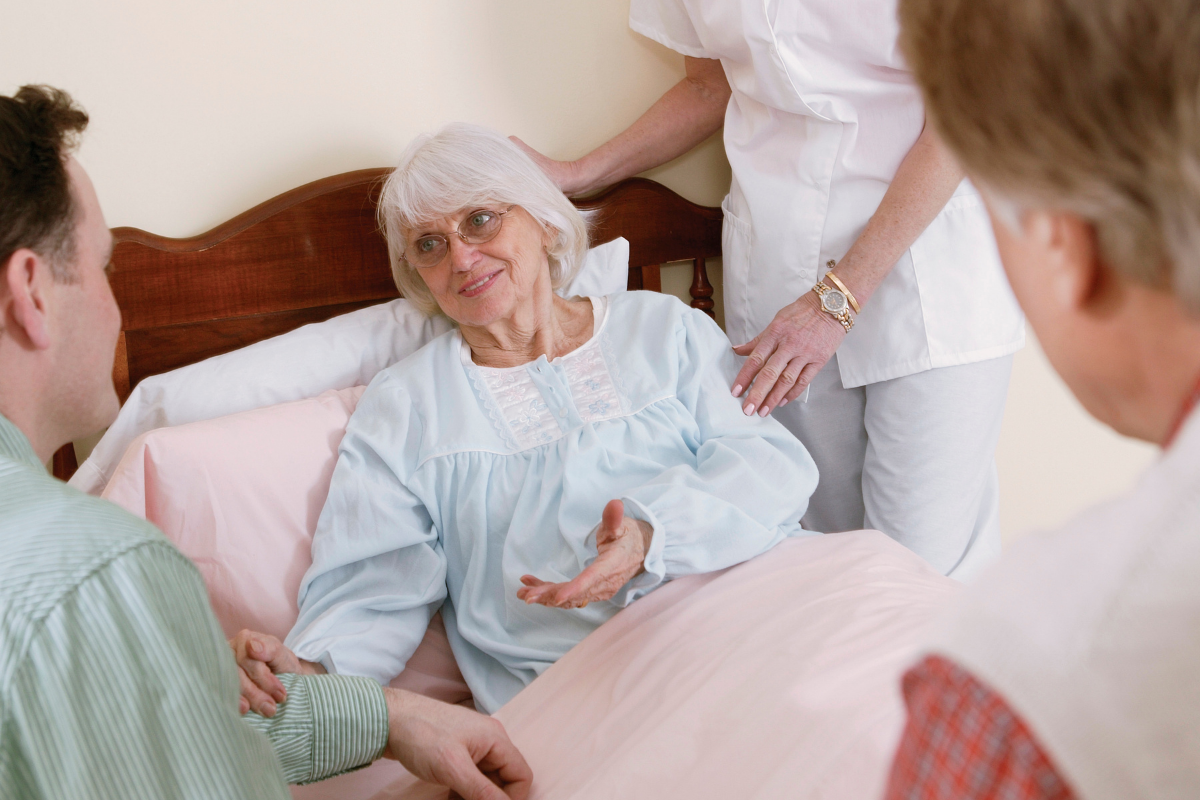 Experiencing your end-of-life journey in an unfamiliar hospital room, away from the things that make you comfortable and at ease, is not something anyone wants to think about.
Experiencing your end-of-life journey in an unfamiliar hospital room, away from the things that make you comfortable and at ease, is not something anyone wants to think about.
But unfortunately, many patients are unaware that hospice care can be provided to them in their private residences, says Debra Wagner, Education Coordinator for Crossroads Hospice & Palliative Care.
“Part of my goal when I’m out educating folks is to let people know that we want to treat people wherever they call home,” Debra says. “We actually can go into a tent in the backyard, if that’s what they call home.”
So, whenever the time comes for you or your loved one to begin receiving hospice care, Crossroads wants to ensure you know what to expect. Crossroads wants you to be comfortable in the surroundings of your choice, because nothing is as comfortable as home sweet home.
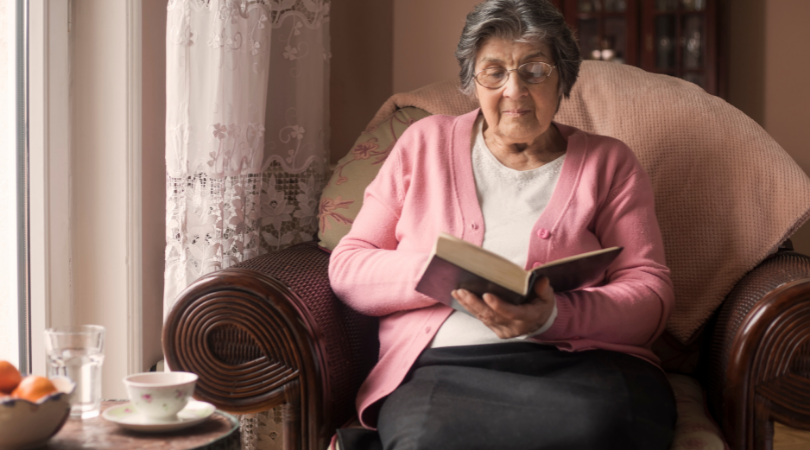
1. Controlling Your Surroundings
Receiving hospice care in your home, says Debra, means that you decide who and what is around you. Unlike being in a hospital, which sometimes means dealing with loud roommates or strange noises throughout the night, when you are in your own home, you get to control your surroundings.
“There are no limitations on what you can do in a private home, if it’s safe,” she says.
For some, that means having their pets near their bedside and for others that means having all their family members with them, which is not always an option in small hospital rooms. For some patients, being at home just means having their favorite pictures or belongings within reach, says Debra.
There are many other benefits, too. Families that practice cultural and religious rituals can continue to practice them, and visitors can come and go, 24 hours a day, seven days a week.
Whatever it means to create a loving and comfortable sanctuary is up to you and your family, and because it’s your home, no one will tell you otherwise.
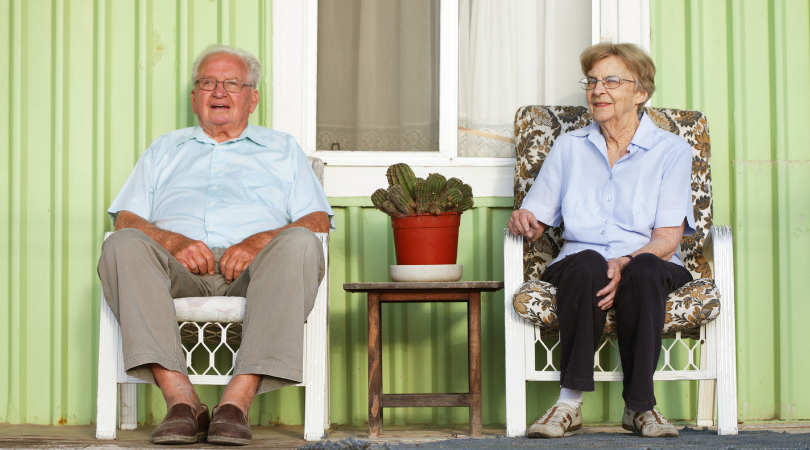
2. Getting Comfortable
When a patient is first coming onto hospice, Crossroads staff will visit them while they’re still in the hospital and begin the discharge process. Once arriving at their home, which Crossroads can help arrange for, they will be met by an RN, who will provide a full assessment to determine their immediate needs.
This can include sourcing medical equipment and specialized furniture, like a bedside commode, an overhead table, or a reclining bed, to keep the patient comfortable during their end-of-life journey.
“We can almost set up a mini-hospital room for you, in your private home,” says Debra.
The goal is to provide the patient with everything they need, and so that the Crossroads team can administer the care and services when something is needed or requested by the patient.
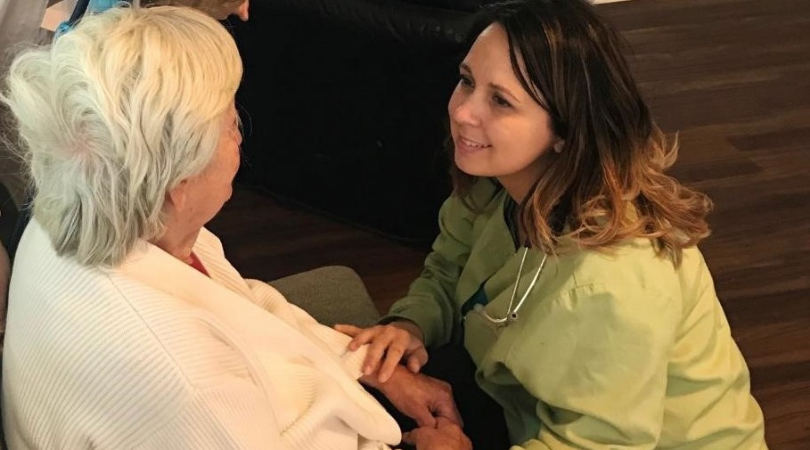
3. Meeting the Crossroads Team
Within the first five days of being home, the patient and their family will be visited by most of the Crossroads team. There are many folks on every team to help manage all of the logistics and details, including your RN case manager, who will be managing your case; your social worker, volunteer manager, bereavement counselor, nurse aide, and chaplain. In that period, everyone will talk together about the care plan and create a shared vision of what’s to come.
“In the beginning, it’s a busy time,” says Debra. “Part of this is that we want to make sure we’re meeting all of your wishes, and all of your needs.”
Beyond your first five days and throughout your entire time with Crossroads, the Crossroads team is available 24 hours a day, seven days a week, 365 days a year to answer your calls. That means, if you have any questions, or want them to check on something, you can call, and someone will be there to talk you through it and make a visit if needed or requested.
4. The Watch Program and Evenmore Care
When you or your loved one begins to experience serious physical decline, Crossroads offers the Watch Program, a specially-designed program to help manage patient symptoms, such as their pain level. While on this program, your Crossroads nurse will visit more often to assure your symptoms are well managed.
The program was designed to ensure that our patients are comfortable throughout their end-of-life journey. With the added presence and care of the Watch Program, we can better recognize when the passing of a patient is imminent. When that happens, Crossroads offers the Evenmore Care program which provides you with a staff member in your home, 24 hours a day, if you wish.
“They are there to monitor the patient, talk with the family, or simply hold the hand of the patient or family,” Debra says.
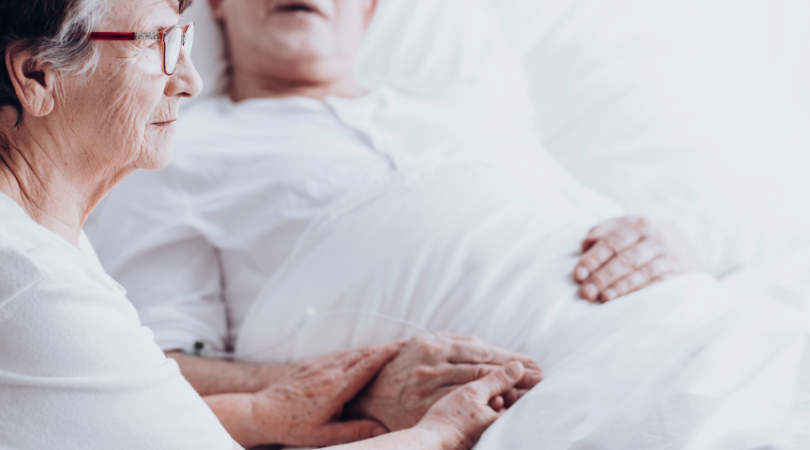
5. When the Time Comes
The end-of-life period can be a scary and overwhelming time for patients and their families. But with Crossroads, you will have support and guidance, so you are never alone as you navigate this journey.
“People have fears they will die alone, and we try to make sure that they are not alone in death, if that is their wish,” says Debra.
Once the time for hospice comes, the Crossroads team will walk you through all your end-of-life choices and decisions. From choosing a funeral home to providing support throughout the family’s grieving process, you will have the support of Crossroads as you navigate the end-of-life experience.
No matter what you are going through, says Debra, “we will be there.”
To learn more about why to choose Crossroads for hospice care, give us a call at 1-888-564-3405.
If you found this information helpful, please share it with your network and community.
Copyright © 2021 Crossroads Hospice & Palliative Care. All rights reserved.




